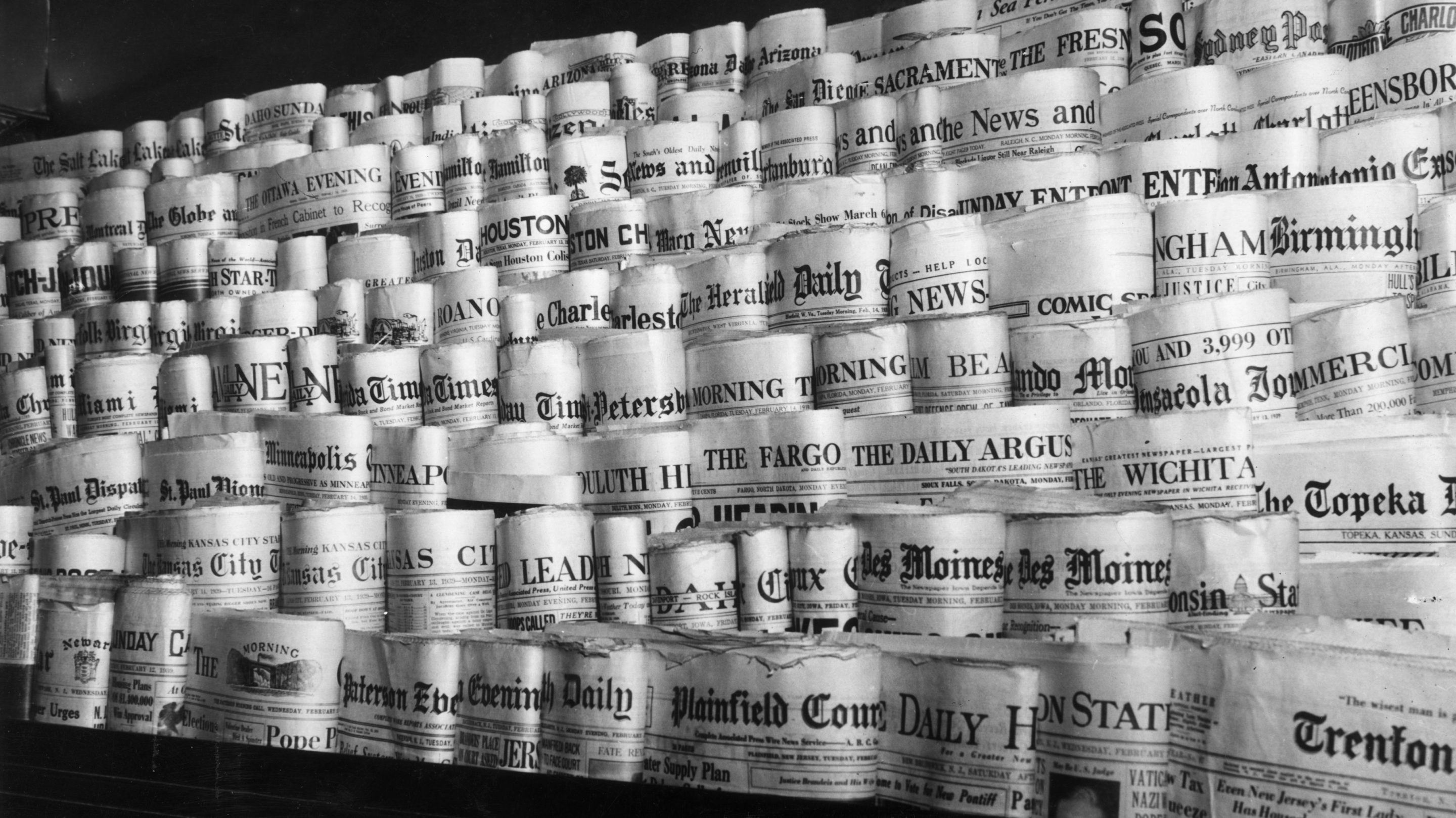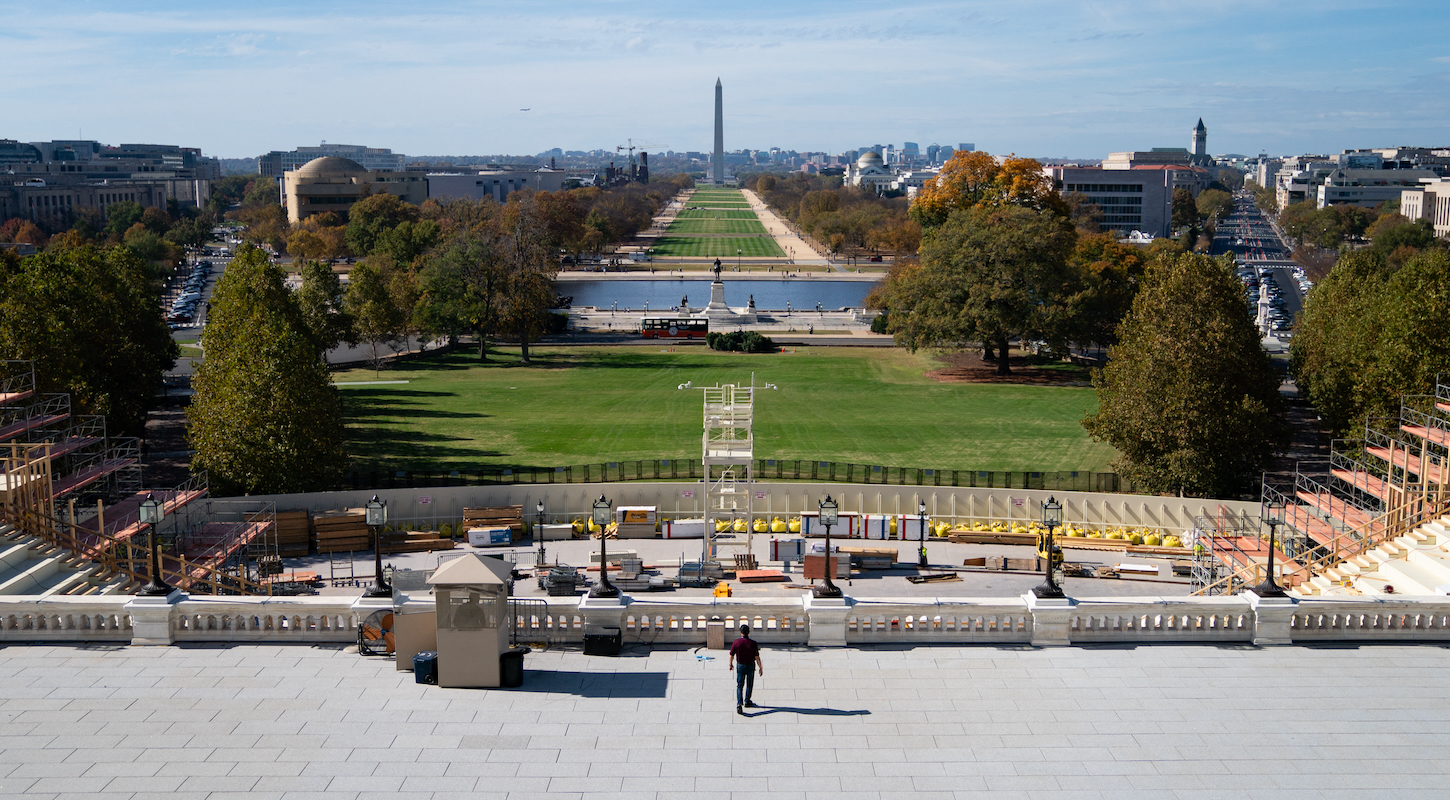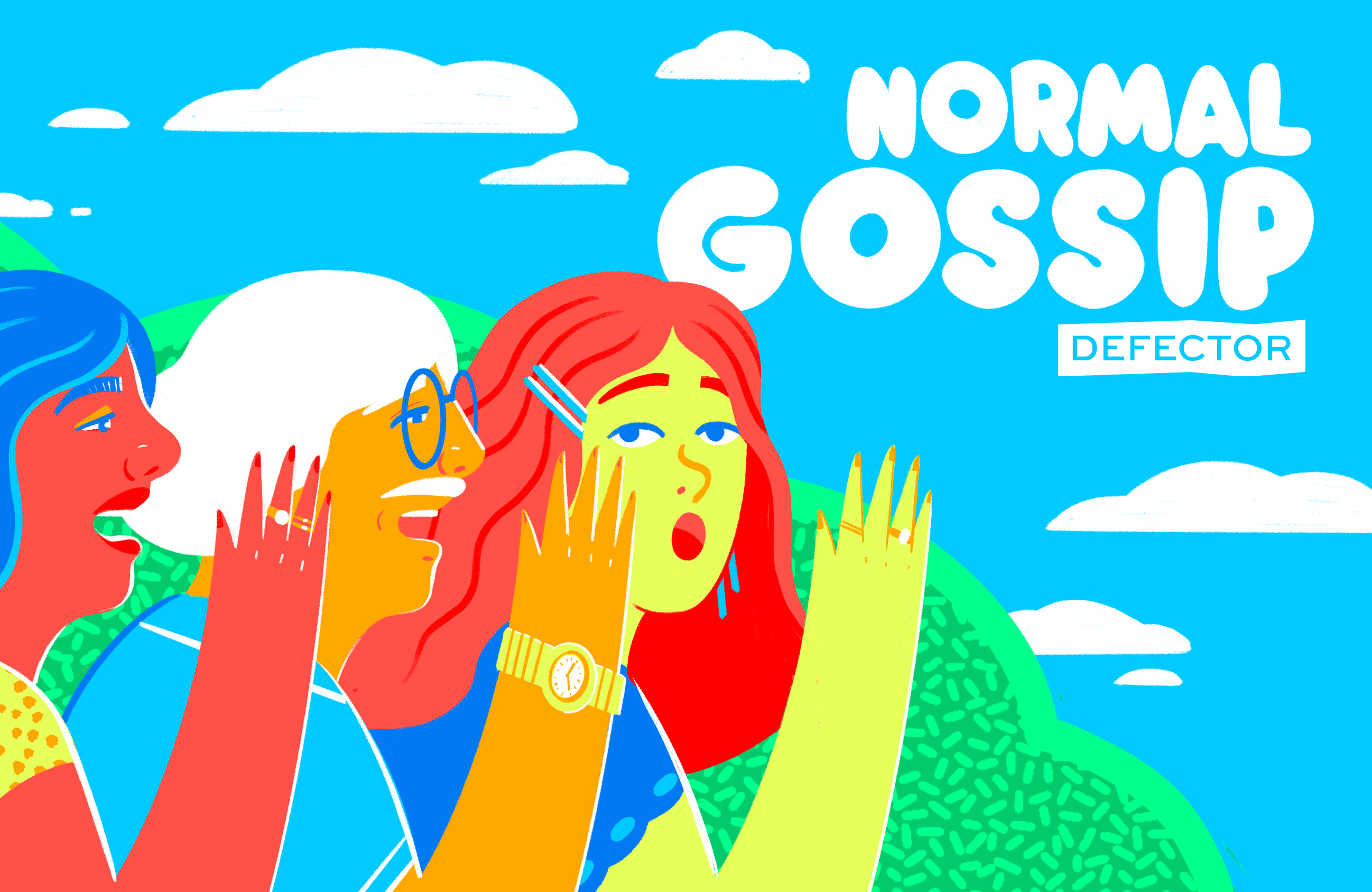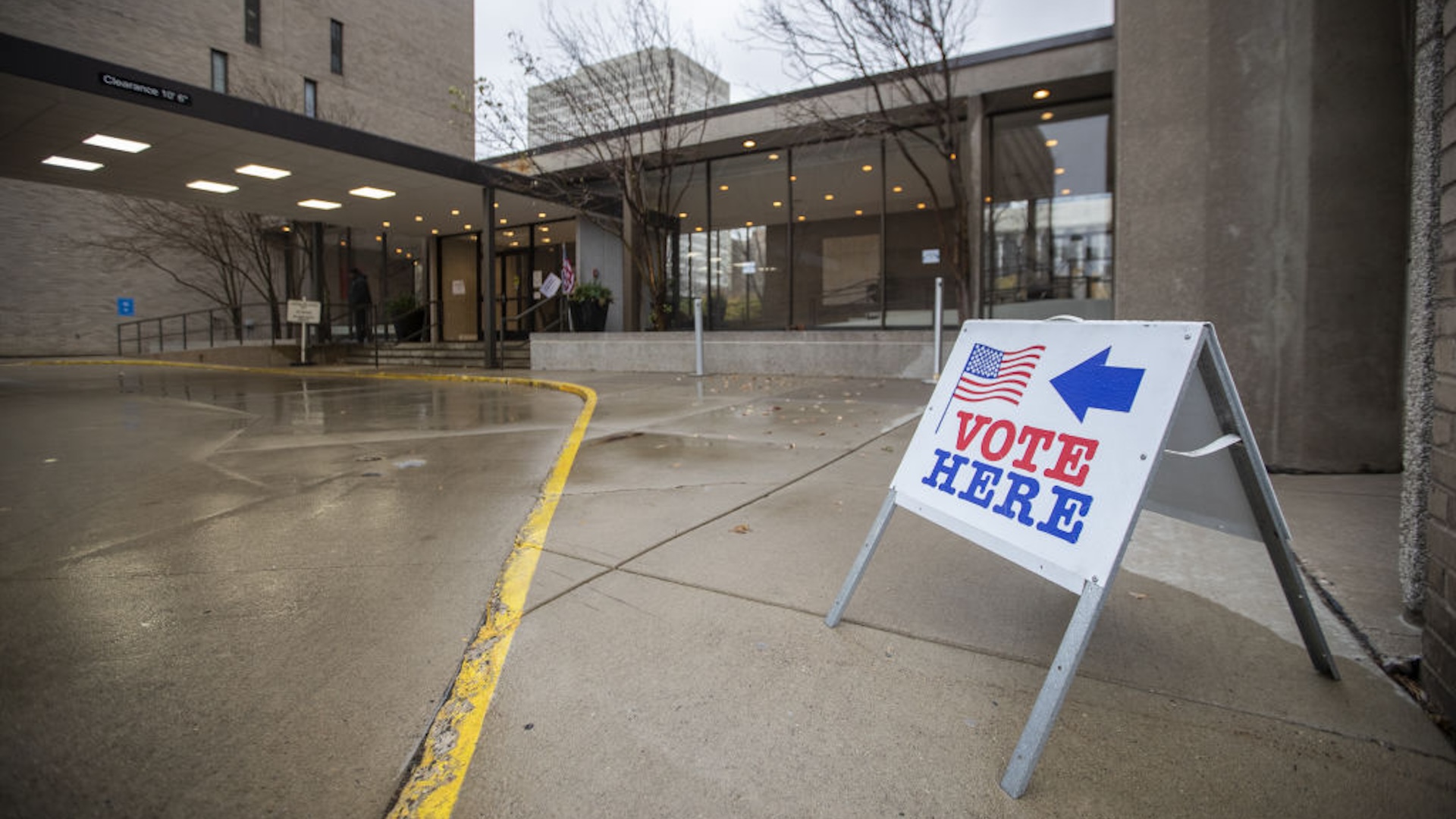What I remember most about being a local news reporter is the yelling.
In local news, everyone is yelling at you all the time. The public information officer you call is yelling at you because you called them at 6:35 p.m. but they clock off at 6:30 p.m. and how dare you interrupt their off time so, look, just take their word for it that whatever you are calling them about is not news. The other public information officer you call is also yelling at you because you weren't supposed to call him, you were supposed to call the other PIO and, dear God, is the paper just hiring dumber and dumber reporters nowadays? You might think about yelling back, but it's not worth it.
Go out on the street and people yell at you. They yell at you because the newspaper stopped covering their community years ago in any meaningful way, because the paper only sends reporters when bad things happen, because the paper provides less news than ever but also wants to charge more than ever. You can't say anything in response, because all these complaints are the truth. So you take it in, absorbing the pain of all those years of genuine neglect, which you will relay to nobody because it has been decades since your newspaper was owned by a company based in the city it covers.
You go back to the newsroom, and your boss yells at you because you needed to be back 15 minutes ago. You navigate the maze of daily publication—writing to length, hitting some absurd deadline, including all the extras for online—most likely with some more yelling along the way if you forgot anything. And then you will finally publish something. Most days, a good number of people in your community will read it. Every now and then, it might go viral—and then people online will read it and yell at you.
When I zoom out of my own lived experience, I can see that all that yelling was almost never about me, although it felt like it in the moment; it is hard to take the long view when another human being is yelling in your face. All that yelling was, more precisely, a symptom of a broken system, which sits atop another broken system, which is in turn atop a grossly dysfunctional system, all made worse by generations of neglect and abuse and decline and all accelerating at remarkable speed thanks to a little invention called the internet. It all, as the proverb goes, rolled downhill, as shit tends to do, onto me—but also onto anyone and everyone else trying to do the job. Anyone who has spent much time working in local news could tell you any of this; there is nothing special about my experience except that I got out of local news and ended up in a different type of news where I can talk plainly to you about it.
It's why I would never be so audacious as to lay out My Plan To Fix Local News, because anyone who has worked in local news knows it's as complex as a Rube Goldberg machine, and every community is its own community-specific Rube Goldberg machine. What Miami needs is not what Detroit needs, even if, yes, a long time ago they were once part of the same newspaper chain. This has of course not stopped all sorts of folks from saying, Hello, here is my plan for fixing local news. You practically can't claim to be a leader or organization without one.
Into the pantheon of local news aid comes our latest edition from Substack. Back in April of 2021, the San Francisco-based company announced Substack Local, a program it said would "foster and develop the local news ecosystem by helping independent writers build local news publications based on the subscription model." In plain English, Substack was going to spend $1 million in grants to 12 local publications that agreed to launch on the Substack newsletter platform both in the United States and around the globe. The company also agreed to provide editors and access to the database service LexisNexis. That was just about all the company provided, which proved to be a problem.
According to reporting done by The Fine Print, Substack did not extend its writers any business support. On their own, writers were tasked with figuring out who would be their readers, how they would reach those readers, what their core coverage areas should be, how much they should charge, and how they would sell their subscriptions and grow their subscriber base. This isn't impossible, but it isn't easy either. We all work on that collectively here at Defector; except here we have 20-something people doing it, we went into our launch with already some idea of who would be our readers, and nobody gave us a one-year deadline on a grant, which the Substack Local projects were given. We also were not holding down full-time jobs and told we had to quit them to participate, which was the case with anyone who received money from Substack Local.
“We know journalism, we don’t need help on that from them. What we need is how do you sell a fucking subscription? How do you market yourself? How do you grow this thing?" Hank Stephenson of The Arizona Agenda told The Fine Print. "What are the things that work here, and there was very little of that.”
Because Substack insists it is a technology company, even though it publishes articles—it could be argued that this, by definition, makes them a publisher—it did provide its writers with one bit of business support. It was the kind that might sound best at a San Francisco dinner party: Facebook ads. That went about how you would expect a round of Facebook ads for local news to go. "It netted us a bunch of angry grandparents who didn’t know what they had subscribed to or why," Stephenson told The Fine Print. "And they just sent us angry emails about it.”
There are more problems, so many problems, relayed in The Fine Print's reporting. David Hundeyin had to make his investigative reporting newsletter West Africa Weekly free, because the separate payment processing platform he was using paused his account due to his address being in West Africa. Substack helped Hundeyin go through the various steps to get it working, he said, but it took about three months; Hundeyin suspects that having to give away his work for free for so long made it harder for him to convince people to pay for it once they could. Another writer, Hanna Raskin, who writes about food in the South, initially got paired with an editor in Oregon who tended to work with poets.
But nothing better typifies the hubris of Substack Local than this: Substack advised its local publication founders to get profiles of themselves in The New York Times. In fact, Substack founder Hamish McKenzie would workshop strategies with writers one-on-one about how to get mentioned in the Times, according to The Fine Print.
This is laughable advice. Anyone with a modicum of knowledge about how local news works outside of New York and Washington, D.C. knows that local publications are a trough of story ideas for the Times, as well as all the national magazines, who comb through their articles looking for potential stories into which they can parachute. You do not give away your sources, let alone advertise them, or ask people to subscribe to them.
The problem with local news, as ever, is there there was a brief moment in time when printing local news could make you quite rich. Take the Knight Foundation, which was created by the Knight brothers, John and James, and initially funded by money from two local newspapers, the Akron Beacon Journal and the Miami Herald as well as "personal gifts" from John and James, who got rich by owning newspapers like the Beacon Journal and the Herald. The Beacon Journal is currently owned by the largest newspaper chain in the country, Gannett, which includes more than 100 daily newspapers across most of the country, not exactly local ownership. The Herald is owned by the hedge fund Chatham Asset Management. The Knight Foundation, meanwhile, has become one of the most prominent grant-makers in journalism, with more than $3 billion in assets. It does not own any newspapers.
The olden days of newspapers were not great, no matter what anybody tells you. Just look at the photos of newsrooms and you can see the issues all there, row after row after row after row of older white men deciding what was the news and what was important and what was considered objectivity for their community, which was almost surely not all male, and probably not all white either, certainly not in the South Florida where I grew up and later was a local reporter.
All this loss, and all this chaos, all this newspaper death should be a chance to correct for the errors of the past, to reset. But instead of that rebuilding campaign we get one-year Substack grants with no business support, Republican propaganda masquerading as news, youth sports recaps written by computers, and, uh, hey, look, Patch is still around. There are successful local news startups: the Colorado Sun, Racket in Minnesota, and Block Club Chicago to name a few. Hell Gate recently launched in New York City. What they all have in common is that they have been started by actual, real, live local journalists. Those journalist-founders probably will not become millionaires, but I doubt they would tell you that becoming a millionaire was the point.
The value of an institution should not solely rest in its ability to make you rich. You can certainly make money in local news. But that's getting harder and harder as "Can this make you rich?" becomes the only metric of value by which any service is measured. I never met anyone working in local news outside of New York and D.C. who had any dream of it making them rich or famous or even reaching the upper echelons of middle class. It was the work they wanted to do, and they wanted to make a living doing that. In a better world, that would be enough, and you could make a good living as a local news reporter while feeling good about the service you provide to your community, the same way you make a living as a local bakery owner or a local dentist or a local pool cleaner.
Stephenson, who co-founded The Arizona Agenda, is still keeping the publication going with his co-founder, Rachel Leingang. He is also cleaning pools. He told The Fine Print that he used to do it as a kid and joked that he would do it again if he quit journalism. Now, he's doing journalism, in part, by supplementing his income by cleaning pools. I like to think he gets yelled at a lot less by his pool customers.





